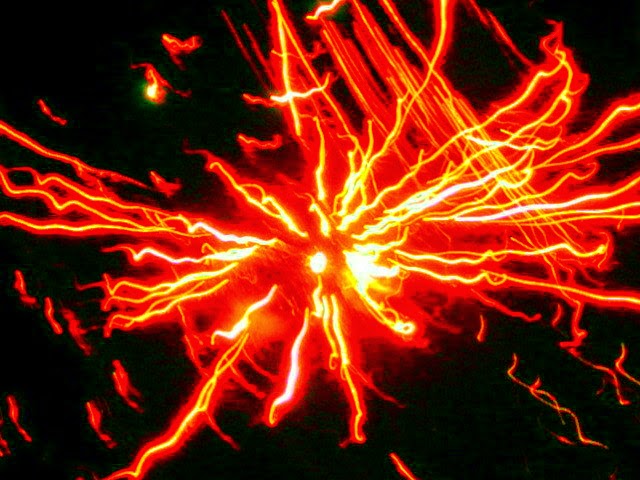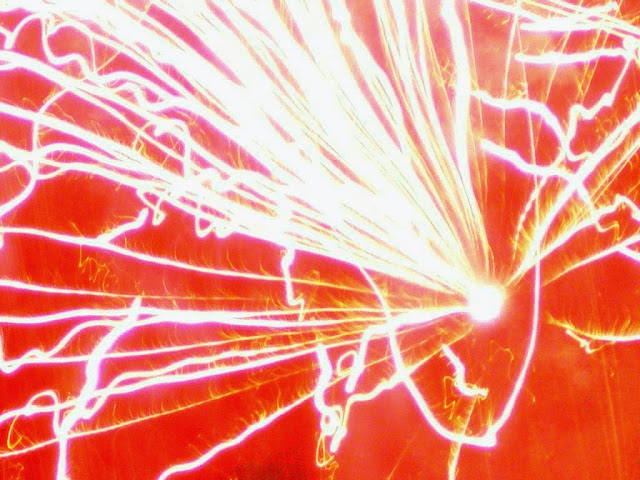BEHOLD
THE MAN - MICHAEL MOORCOCK
I must confess, I've always been a bit of a fan of Hawkwind but then
who in their right mind wouldn't be? I've heard and owned a
reasonable amount of their recorded output over the years and seen
them perform live a number of times, starting out from experiencing
them at the Stonehenge Free Festival many moons ago when I was but
knee-high to a grasshopper. I must also confess, however, that as inexplicable as it might be to some, until now I've
never read anything at all by Michael Moorcock.
Moorcock, of course, was once inextricably linked with Hawkwind and
used to perform live with them. I guess my only excuse is that there
always seemed to have been other books to read instead?
So, with that confession out of the way I'm basically declaring that
I'm no expert on Michael Moorcock at all so I don't actually know
whether Behold The Man is typical of his work, or one of his
best or perhaps not one of his best? This, then, is a layman's
review.
First published in novel-form in 1969, a shorter version of Behold
The Man originally appeared in a magazine called New Worlds and won
the Nebula Award for the best novella in 1967. It's the story of a
bookshop owner called Karl Glogauer who volunteers to be the first
person to travel in a time machine that's been invented by an old
eccentric physicist; Glogauer's only proviso being that he chooses
the time and the place to travel back to. The time machine can only
travel backwards in time, not forward; and as it's only the untested
prototype there's the danger the machine may not be able to return
successfully.
Glogauer isn't a very likeable character it must be said, in fact
he's quite pitiful due to having just a few too many issues. He's self-pitying, humourless, sexually-repressed, has suicidal tendencies, he's a victim of predators in all shapes and forms, and has an
unhealthy (or perhaps healthy?) interest in Jung. His chosen
destination to travel to is Nazareth, in the Middle East and his
chosen period to travel back in time to is AD28, approximately one
year before the crucifixion of Christ.
For Glogauer, discovering the truth about Jesus and whether or not He
actually existed will give meaning to his life and settle the
discontent he's always carried with him. The book begins with the
time machine crash-landing and Glogauer crawling from the wreckage.
He's rescued from the desert wilderness into which he's crashed by
tribesmen who take him to their village, whereupon he's questioned by
a giant of a man as to who he is and where he's from. The giant's
name is John The Baptist. Glogauer is accepted by the tribe and takes a place amongst them whilst recovering from injuries sustained from
the crash. His strange arrival in a chariot of fire from the heavens
is seen as being a sign from their god and he's taken to be a magus.
Glogauer has suddenly landed centre-stage in events that are about to
change the course of the world.
John The Baptist asks that Glogauer baptise him and announce to the
tribesmen that the time is ready for the kingdom of heaven to be
established on earth. Glogauer agrees, seeing it as merely helping to
prepare the way for the arrival of Christ but when it comes to the
moment of baptising John, Glogauer is unable to go through with it
and flees into the desert where for forty days and forty nights he
roams.
Glogauer is next found stumbling into a town; emaciated, half naked
and talking in tongues. He's in search of a carpenter by the name of
Joseph who with his wife Mary are the parents of a child called
Jesus. He's finally led to them only to find Joseph a sour man who
never laughs, Mary a sex-craved bully and their son Jesus a
dribbling, giggling, hunchbacked imbecile.
He's offered refuge by the rabbis at a local synagogue where he
spends his time whilst recovering from his ordeal in the desert
trying to understand what has gone wrong. There is, however, no
answer to be found. The Testaments and scrolls he reads are simply false and confusing. In the meantime, the rabbis and the townfolk are becoming
ever more curious about this stranger in their midst.
Glogauer takes to roaming the streets and talking to people, who,
viewing him as some strange prophet start seeking his advice on all
manner of things. He obliges them and his reputation quickly spreads,
enhanced by him pitying the poor and the sick and curing some of
easily remediable psychosomatic conditions. He develops a following
and word spreads of the miracles he performs. Glogauer is only too
aware that what he's doing is turning the myth of Jesus into reality.
He gathers around him twelve particular disciples and after further
sermons and performing of 'miracles' he prepares for his ride into
Jerusalem on a donkey, though not before ordering one of the
disciples - by the name of Judas Iscariot - to inform the governor
Pilate of the prophet's revolutionary intentions. Judas does as he is
bid and the prophet is duly arrested and as punishment is sentenced
to death by crucifixion.
The book ends with Glogauer in agony on the cross, pleading to be let
down. Finally crying out until his last breath: "It's a lie -
it's a lie - it's a lie..."
For a book dealing in such heavyweight themes as Jungism and the
imitation of Christ, Behold The Man is actually a very light read
which is obviously evidence of Moorcock being a very good writer. In
the past, Moorcock has declared himself to be an Anarchist and this
makes sense as it would require someone to have that kind of
sensibility to be able to write a book such as this.
Behold The Man
trashes the mythology of Christ though it should be stressed it
doesn't actually trash His teachings. Moorcock's Glogauer character
may well have a messiah complex but by taking on the role of Christ
and knowing he will die in agony, he's making sure lessons such as
brotherly love and the non-acquisition of personal wealth are cast in
stone and continue down through the ages. The problem with this, however, is that when Glogauer enters Jerusalem on his donkey the crowds aren't seeking lessons in brotherly love and so on, they're looking to be led into armed revolt against the Romans. John The Baptist had been planning to rise against the Romans that Passover, and it was thought that the new prophet was taking John's place as a rebel leader. "Free us! Free us!" the crowds call but because the armed revolt the crowds want isn't in the story Glogauer's enacting, all that he can say is "No. I am the messiah. I cannot free you."
Is this a blasphemous book? Of course it is, though when read objectively it's actually doing Christianity a service by placing the accent on the message of Christ, not the messenger. And it's the message that's the most important thing, is it not? Which is something I suspect a few Christians could do with remembering because believe you me, I've met a few in my time who haven't an iota of love in their eyes, their words or their actions let alone their hearts.
To those who might judge a book by its cover, Behold The Man would appear to be a cheap, pulp sci-fi novel but it's actually an incredibly well researched and interesting book. Michael Moorcock is an important figure in English literature though I suspect he's dismissed by a lot of people and not given the respect he's due simply because of the field he works in, meaning the fantasy/sci-fi genre. I suspect a lot of people are losing out - and I would include myself among those who have lost out due to not picking up on him earlier. The same would also go for Hawkwind, as in a lot of people miss out on them due to preconceived ideas but at least I don't count myself as one of those. But yes, Michael Moorcock - I shall endeavour to read more of his books in the future.
John Serpico














